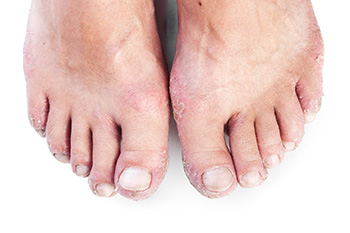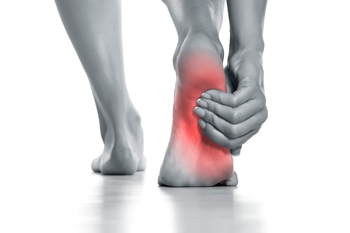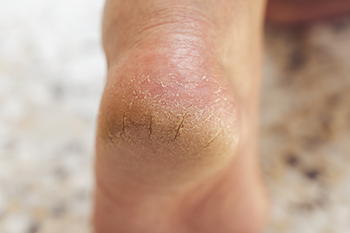Connect With Us
Blog
Items filtered by date: December 2023
Reasons to Have Foot Surgery

Foot surgery is a decision often made with the goal of alleviating persistent discomfort and enhancing overall foot health. One common reason to have foot surgery is the correction of structural abnormalities, such as bunions or hammertoes, which can cause pain and affect mobility. Surgical intervention may also be necessary to address severe cases of conditions like plantar fasciitis, where conservative treatments have proven insufficient. Removal of painful growths or deformities, such as cysts or bone spurs, is another motive for foot surgery. Injuries, such as fractures or torn ligaments, may require surgical repair to restore normal function. In some cases, joint fusion or replacement becomes a viable option for advanced arthritis. Surgical procedures tailored to specific needs can significantly improve quality of life, reduce pain, and restore mobility, allowing individuals to step into a future with greater comfort and functionality. If you have a specific foot condition and are considering surgery, it is strongly suggested that you are under the care of a podiatrist who can help you determine if this is a correct decision for you.
Foot surgery is sometimes necessary to treat a foot ailment. To learn more, contact the foot specialists of Affiliates in Foot Care, P.C.. Our doctors will assist you with all of your foot and ankle needs.
When Is Surgery Necessary?
Foot and ankle surgery is generally reserved for cases in which less invasive, conservative procedures have failed to alleviate the problem. Some of the cases in which surgery may be necessary include:
- Removing foot deformities like bunions and bone spurs
- Severe arthritis that has caused bone issues
- Cosmetic reconstruction
What Types of Surgery Are There?
The type of surgery you receive will depend on the nature of the problem you have. Some of the possible surgeries include:
- Bunionectomy for painful bunions
- Surgical fusion for realignment of bones
- Neuropathy decompression surgery to treat nerve damage
Benefits of Surgery
Although surgery is usually a last resort, it can provide more complete pain relief compared to non-surgical methods and may allow you to finally resume full activity.
Surgical techniques have also become increasingly sophisticated. Techniques like endoscopic surgery allow for smaller incisions and faster recovery times.
If you have any questions please feel free to contact our office located in Woburn, MA . We offer the newest diagnostic and treatment technologies for all your foot and ankle needs.
The Effects of Psoriatic Arthritis on the Feet and Ankles

Psoriasis is a visible autoimmune disease characterized by red patches of skin with silvery scales. It results from an overactive immune system, attacking healthy tissue and causing excess skin cell production. However, this immune response can also trigger inflammation in joints. Approximately one-third of psoriasis patients develop psoriatic arthritis, or PsA, a chronic inflammatory joint disease. Often, psoriasis precedes PsA, but joint issues can emerge before skin symptoms, or may be so mild that patients do not connect them with psoriasis. Psoriatic arthritis can affect any joint, including the ankles and tendons around them. Symptoms include pain, tenderness, swelling, and warmth in the joints. Foot-related problems from PsA can include swelling of entire toes, heel pain from Achilles' tendon inflammation, and sole pain due to plantar fascia inflammation. Additionally, it can cause nail changes such as lifting, pitting, discoloration, or thickening. Managing PsA involves symptom control and joint protection. If you have psoriatic arthritis and it is impacting the comfort of your feet or ankles, it is suggested that you schedule an appointment with a podiatrist for a correct diagnosis and treatment options.
Arthritis can be a difficult condition to live with. If you are seeking treatment, contact the foot specialists from Affiliates in Foot Care, P.C.. Our doctors can provide the care you need to keep you pain-free and on your feet.
Arthritic Foot Care
Arthritis is a joint disorder that involves the inflammation of different joints in your body, such as those in your feet. Arthritis is often caused by a degenerative joint disease and causes mild to severe pain in all affected areas. In addition to this, swelling and stiffness in the affected joints can also be a common symptom of arthritis.
In many cases, wearing ill-fitting shoes can worsen the effects and pain of arthritis. Wearing shoes that have a lower heel and extra room can help your feet feel more comfortable. In cases of rheumatoid arthritis, the arch in your foot may become problematic. Buying shoes with proper arch support that contour to your feet can help immensely.
Alleviating Arthritic Pain
- Exercises that stretch the foot can prevent further pain and injury and increase mobility
- Most of the pain can be alleviated with anti-inflammatory drugs, heat, and topical medications
- Massages can help temporarily alleviate pain.
It is best to see your doctor for the treatment that is right for your needs and symptoms. Conditions vary, and a podiatrist can help you determine the right method of care for your feet.
If you have any questions, please feel free to contact our office located in Woburn, MA . We offer the newest diagnostic tools and technology to treat your foot and ankle needs.
Complex Regional Pain Syndrome in the Foot

Complex Regional Pain Syndrome, or CRPS, in the foot is a condition where foot pain becomes intense and persistent, often after an injury or surgery. It can make your foot extremely sensitive to touch, and even the slightest contact may cause severe pain. Additionally, your foot may change in appearance, becoming swollen or discolored. You may find it challenging to move your foot and use your muscles properly. CRPS in the foot can be diagnosed through a physical examination and tests such as X-rays or nerve tests. While it is a complex condition, there are treatments available. If you are experiencing unusual or severe foot pain, it is strongly suggested that you schedule an appointment with a podiatrist to create a personalized plan to regain comfort and function in your foot, which may involve exercises and pain management techniques.
Some foot conditions may require additional professional care. If you have any concerns, contact the foot specialists of Affiliates in Foot Care, P.C.. Our doctors can provide the care you need to keep you pain-free and on your feet.
Rare Foot Conditions
The majority of foot conditions are common and can be treated by a podiatrist. Standard diagnostic procedures are generally used to identify specific conditions and treatment can be rendered. A podiatrist also treats rare foot conditions which can be difficult to diagnose and may need extra attention and care.
There are many rare foot conditions that can affect children. Some of these can include:
- Freiberg’s disease
- Kohler’s disease
- Maffucci syndrome
Freiberg’s disease - This can be seen as a deterioration and flattening of a metatarsal bone that exists in the ball of the foot. It typically affects pre-teen and teenage girls, but can affect anyone at any age. Symptoms that can accompany this can be swelling, stiffness, and the patient may limp.
Kohler’s disease - This often targets the bone in the arch of the foot and affects younger boys. It can lead to an interruption of the blood supply which ultimately can lead to bone deterioration. The patient may limp or experience tenderness, swelling, and redness.
Maffucci syndrome - This affects the long bones in a child’s foot leading to the development of abnormal bone lesions. They are benign growths and typically develop in early childhood and the bones may be susceptible to breaking.
A podiatrist can properly diagnose and treat all types of rare foot conditions. If your child is affected by any of these symptoms or conditions, please don’t hesitate to call our office so the correct treatment method can begin.
If you have any questions please feel free to contact our office located in Woburn, MA . We offer the newest diagnostic tools and technology to treat your foot and ankle needs.
Exploring the Causes of Cracked Heels

Cracked heels, a common foot ailment, result from a combination of environmental, lifestyle, and health factors. Insufficient moisture is a primary culprit, as dry skin lacks the flexibility to withstand the pressures of daily activities, leading to heel fissures. Prolonged standing or walking on hard surfaces can contribute to the development of cracks, especially when combined with ill-fitting shoes that fail to provide adequate support. Skin conditions such as eczema or psoriasis may exacerbate heel dryness, making them more susceptible to cracking. Unhealthy lifestyle habits, including poor nutrition and dehydration, can impact skin health, diminishing its ability to retain moisture. Obesity or excess body weight increases pressure on the heels, further predisposing them to crack. Additionally, age-related factors such as reduced oil production and diminished skin elasticity make older individuals more prone to cracked heels. If you have developed cracked heels, it is strongly suggested that you visit a podiatrist who can provide you with treatment options, which may include prescribed medication.
Cracked heels are unsightly and can cause further damage to your shoes and feet. If you have any concerns, contact the foot specialists from Affiliates in Foot Care, P.C.. Our doctors can provide the care you need to keep you pain-free and on your feet.
Cracked Heels
Cracked heels appear unappealing and can make it harder for you walk around in sandals. Aside from looking unpleasant, cracked heels can also tear stockings, socks, and wear out your shoes. There are several methods to help restore a cracked heel and prevent further damage.
How Do You Get Them?
Dry skin is the number one culprit in creating cracked heels. Many athletes, walkers, joggers, and even swimmers suffer from cracked heels. Age and skin oil production play a role to getting cracked heels as well.
Promote Healing
Over the counter medicines can help, especially for those that need instant relief or who suffer from chronic dry feet.
Wear Socks – Wearing socks with medicated creams helps lock in moisture.
Moisturizers – Applying both day and night will help alleviate dryness which causes cracking.
Pumice Stones – These exfoliate and remove dead skin, which allows for smoother moisturizer application and better absorption into the skin.
Change in Diet
Eating healthy with a well-balanced diet will give the skin a fresh and radiant look. Your body responds to the kinds of food you ingest. Omega-3 fatty acids and zinc supplements can also revitalize skin tissue.
Most importantly, seek professional help if unsure how to proceed in treating cracked heels. A podiatrist will help you with any questions or information needed.
If you have any questions, please feel free to contact our office located in Woburn, MA . We offer the newest diagnostic and treatment technologies for all your foot care needs.

